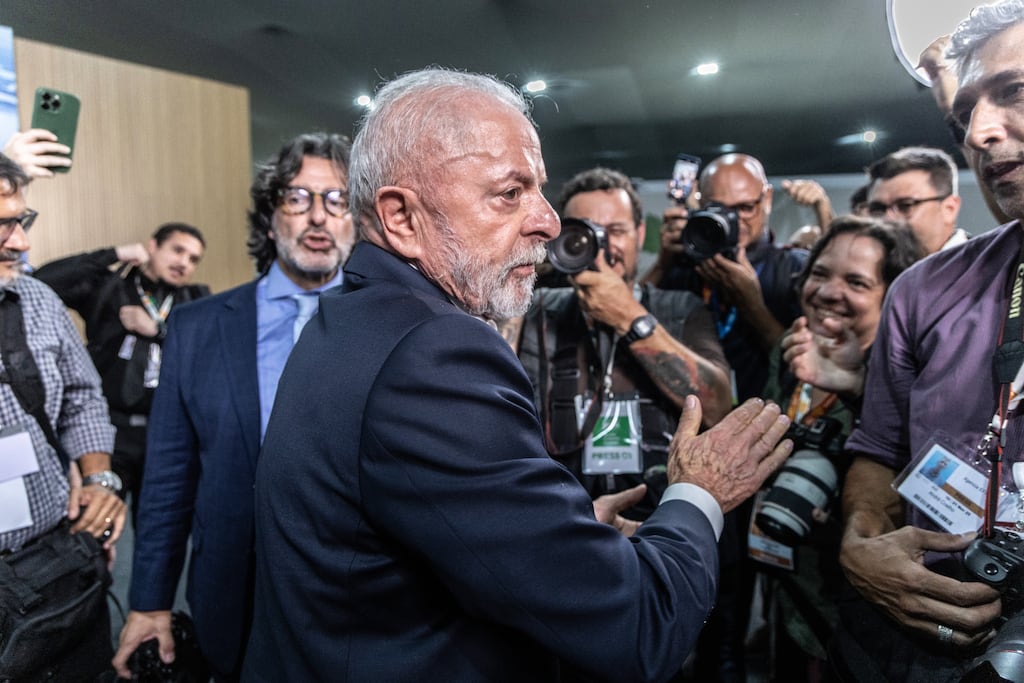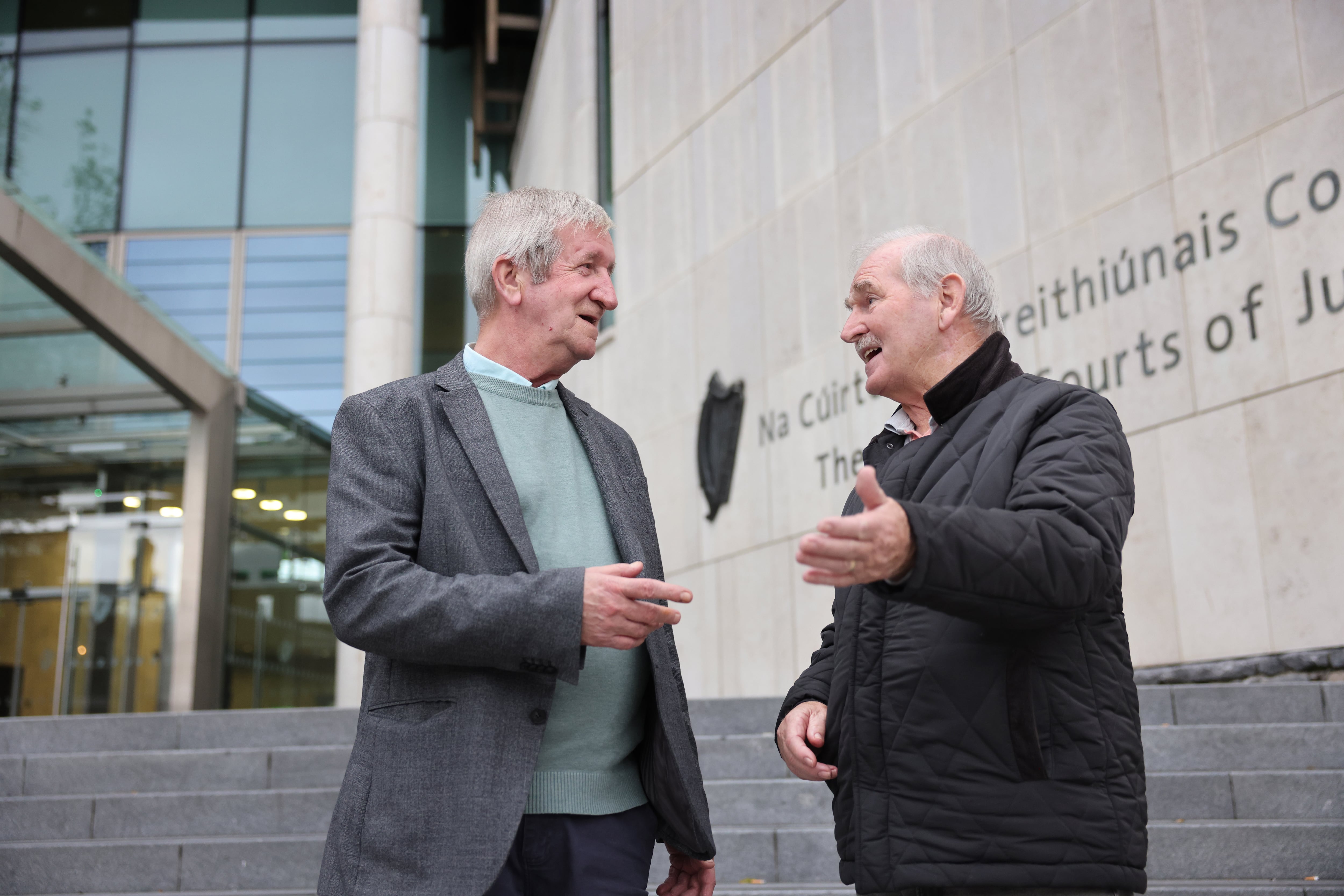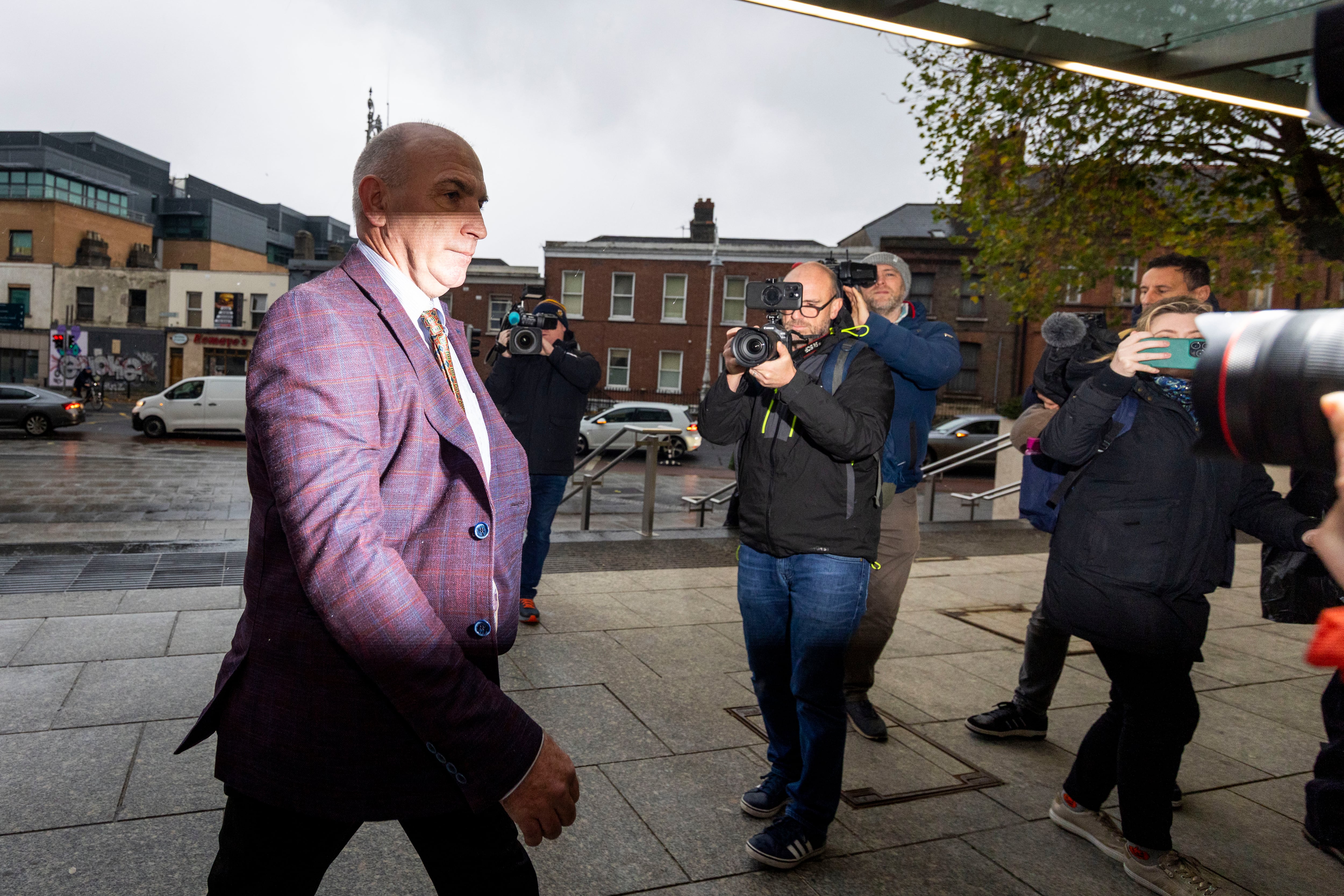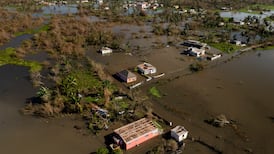If you want to make an Amazonian wince, tell them how you eat acai berries.
“They are not berries,” says Victor Lima, shaking his head in mock indignation as he points to the clusters of roundness hanging far up in an acai palm. “They are seeds.” And they are not, despite the hype in the nutrition and wellness world, a newly discovered superfood.
“We have eaten acai forever,” he says.
“And you add sugar, banana, chocolate – no, no, no. Acai is not sweet. We make a juice and we fry fish, shrimp, jerky beef and chicken in it. It’s savoury. That’s the way we do it in Para.
READ MORE
“Unless ... ice cream. It’s okay you sweeten it for ice cream. Everything is okay for ice cream.”
Victor is a jocular tour guide with a serious message.
Leading a small group through the Amazonian rainforest in the region of Para, not far from the city of Belém where the Cop30 climate summit is under way, he pours out information that underpins the madness of a world that cuts down these extraordinary habitats.
He says the tree used for the stilts on which the riverside homes are built, the tree with the small spikes used for scraping scales off Amazonian catfish, the tree with the giant spikes that you use to fight your enemy.
Around 200 different palm trees grow in Amazonia and 150 produce fruits, seeds and nuts commonly eaten in this region.
The variety and value growing everywhere is immense.
And that’s before even considering how important this habitat is for nature or how critical it is as one of nature’s great carbon sinks – a vast natural carbon capture and storage facility, doing its best to make up for the greenhouse gases humans so wantonly emit.
How to monetise that value in a sustainable way is a central theme of Cop30.
There is more profit to be made from clearing the land for cattle, timber and mining, and these activities, legal and illegal, have destroyed around 20 per cent of Amazonia in just 50 years.
Brazilian president, Lula da Silva, has taken a firm approach to the issue since returning to power in 2023, cracking down on illegal activities.
He has devised the Tropical Forest Forever Facility (TFFF), a global fund he hopes will raise enough money to provide financial incentives to keep forests standing, in Brazil and 73 other countries with similar habitats.
The idea is that richer countries contribute to a seed fund of $25 billion, which will attract private finance of €100 billion, with the total to be invested in secure bonds.
Part of the interest earned is to be paid to countries that can prove they have reduced deforestation rates to below 0.5 per cent.
It’s a complex mechanism and requires World Bank oversight but 53 countries, including Ireland, endorsed it at its formal launch last week.
Endorsement does not mean Irish money flowing into it – at least not yet.
Taoiseach Micheál Martin said he felt this concept was good and the scale of ambition impressive but he wasn’t going further at this stage.
“It’s a good initiative and we will be interested in it and will be working with the World Bank and others to get a sense and perspective of the finances involved,” he said, somewhat ambiguously.
Many NGOs express no such ambiguity – they are resolutely opposed to the TFFF as a poor replacement for straightforward aid and effective legislation.
Karen Balfe, chief executive of ActionAid Ireland described it as “a gamble in the casino of financial markets”.
“Public finance is scarce and needs to go directly to forest communities rather than to complex financial instruments that aren’t guaranteed to raise money or benefit people on the ground,” she said.
But there are practical questions too, such as, why private investors would participate in the TFFF when they could get better returns elsewhere and ease their climate guilt by investing in forest-based carbon credits that provide a handy offset for their own emissions.
Norway is one of the first countries to commit funding to the TFFF, pledging $3 billion over ten years.
The Global Forest Coalition (GFC), an alliance of like-minded organisations, which has dismissed the TFFF as “green capitalism”, an oxymoron.
As devised, the TFFF ultimately expects to generate $3-4 billion per year in returns, enough to pay countries $4 per hectare of conserved forest, with indigenous peoples and local communities receiving 20 per cent of that.
Janaina Uemura, a Brazilian campaigner with the GFC, said based on the initial response to the initiative, the payment to local peoples would be just 16 cents per hectare.
“A laughable amount for the people responsible for doing the hard work of protecting forests,” she said.
Back in the rainforest, Victor Lima drops the jokes for a moment, warning that some unusually long dry spells in recent years had reduced the acai harvest.
Ordinarily there would be enough for the domestic market, but the new high demand from overseas had caused prices to spike, hurting local people.
He is as hopeful as he can be that Cop30 will be productive.
“I cannot shake the feeling that Cop will be just one more event. That’s what I’m afraid of – that you talk, you talk, you talk and nothing gets done.
“But I have hopes that with this Cop in the Amazon, that people really understand the impacts of their actions and try to improve their own way of living, try to improve the world we live in, because if we do nothing we won’t have a future.”















